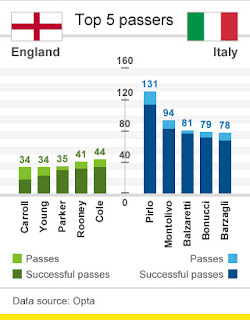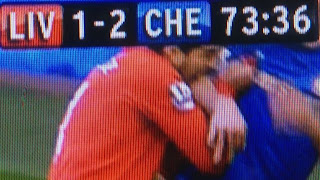by Joey Davies
WHEN Wilfried Bony nodded Wayne Routledge's cross past Anders Lindegaard to confirm only Manchester United's second third-round exit from the FA Cup in 27 years, it was difficult not to feel a degree of sympathy for David Moyes.
He stood alone on the sidelines with nobody to turn to, no experienced hand for comfort having sacked all of Ferguson's tried and trusted backroom team, and an Old Trafford crowd which had emptied faster than it did when Manchester City were scoring for fun there only 27 months ago. In many ways, the apathy and resignation from the loyal home support painted an even gloomier picture than if they had rebelled against their team and their hierarchy.
There are three key areas where David Moyes is failing right now at Manchester United. It would be a little harsh to say 'sack him now', but perhaps he warrants the opportunity to address them. At Everton, he successfully managed to convince Fleet Street's finest that the years under him were the best that Everton could accomplish, despite putting together some strong teams at Goodison Park and not winning a trophy with any of them. Just to put that into perspective even Alex McLeish managed to win one with Birmingham City. Steve McClaren, Harry Redknapp and even Kenny Dalglish after 11 years out of football management, were able to guide a team to trophy success in England. So why does regularly finishing in the top half at a club with nine domestic league championships- the fourth most in English football history, warrant being lionised as a messiah and the perfect candidate to succeed Sir Alex Ferguson, arguably the most successful manager since the game was created?
One of the faults he is displaying at the moment is his mentality. What followed Sunday's defeat were a smattering of puzzling remarks from 'the Chosen One' (the moniker bestowed upon him by the Stretford End) about United's performance. Moyes suggested that while they didn't do enough to win the tie, they didn't deserve to lose it. Now this comment would not raise an eyebrow at a club like say, Fulham or West Bromwich Albion, whereby mid-table Premier League solidity would be greeted with general satisfaction from both the top brass and the fanbase. But when you factor in United's squad even without Wayne Rooney and Robin van Persie still featured several internationals, some of whom cost eight-figure transfer fees, bemoaning bad luck at home to Swansea City is one excuse that simply doesn't wash and suggests a mid-table, safety-first mentality. This is Manchester United, a club of similar stature to Bayern Munich, Barcelona or Real Madrid. Complaining of bad luck after defeats at home to lesser lights simply isn't acceptable.
Tactics are another Achilles heel for Moyes at the moment. This is epitomised by his soundbite that they 'played well' because they had got to the edge of the box a few times. Almost like it was a huge achievement to even cross the half way line. When United did attack their opposition, there was only one tactic- pass it out wide, and put a cross in to the area. It worked once, when Alexander Buttner set up Javier Hernandez's equaliser, but most of the deliveries, if you could call them that, were aimless and epitomised United's display- lacking creativity, a plan B, and the kind of panache and imagination you associate with a Manchester United side. They looked like they were set to a rigid template, without an ounce of swashbuckling freedom. What's stopping him from attempting to change formation, system or even working on trying to play through the middle with quick, incisive short passes? The classic United teams could score beautiful goals, simple goals, headed goals from crosses, you name it- because they were multi-dimensional. Right now whenever I watch them, I struggle to decipher what the playing style is supposed to be- surely it isn't just 'rely on wingers to cross it in' because that would be so Sunday League, it'd make Mike Bassett look like a football genius, and justify the 'dinosaur' jibe that ex-Wales assistant Raymond Verheijen recently aimed in his direction.
Suggesting they played well also exposed another hole in his work at the moment- man-management. It is almost like Moyes is in awe of the players, and the club. It was down to Darren Fletcher to bemoan to the press on Sunday that it wasn't acceptable by the standards the club has set. Moyes made no such claims. He has won nothing yet is in charge of a dressing room that has accomplished pretty much everything- besides the FA Cup funnily enough, only Fletcher of the current squad was around when they defeated Millwall 3-0 in the 2004 final, and Rio Ferdinand was serving a ban for a doping violation. Yet if Moyes wants to be respected in spite of his lack of silverware, stamping his foot down like a true authoritarian is the only way forward. He can look to another young manager from these shores, Brendan Rodgers, whom when confronted with big names like Steven Gerrard and Luis Suarez, has oozed confidence and belief in his own ability not to be overawed by their stature. And he has got the best out of both this season, especially the Uruguayan.
Now while most would adknowledge this United squad might not stand up in comparison to the very best that Sir Alex Ferguson constructed, it is still a team that last season scored 86 league goals, and came back from behind on numerous occasions. Not to mention up until a ridiculous decision by a Turkish official by the name of Cuneyt Cakir, they were outplaying Real Madrid- with Ronaldo, Benzema and co, in a two-legged Champions' League knockout tie. Now while Ferguson's brilliance might be a significant factor, you cannot just suggest that the squad he has left is a rabble. Besides the obvious pair, David De Gea has established himself as a top European goalkeeper. Indeed without him, United might have suffered more defeats than they have already. Three of the back four have been ever-presents for years, although they have shown signs of ageing this season. Antonio Valencia has struggled this year, but has excelled in past campaigns. How many vital goals did Javier Hernandez pop up with in the 2010-11 season? These aren't a gang of duds.
Where those who want to see Moyes given time and the restless natives would strike a chord on is the lack of central midfield craft at his disposal. Michael Carrick is 32, so he may have a couple more seasons left to offer them, but besides him, who possesses the close control, ability to probe with the ball at feet, and the passing to unlock a defence? Anderson is more of a destroyer, Fletcher too, although he has not long returned from illness. But the most damning of these examples is Marouane Fellaini- and he is arguably even not a central midfielder. The Belgian excels when playing off a striker. In the derby at the Etihad, Samir Nasri and David Silva simply dismantled him with their technical superiority. Yet Moyes decided to pay £27m for him, possibly due to deadline day panic after a farcical transfer summer that in his defence, he alone cannot bear responsibility for.
The only ones benefitting from Fellaini right now are Everton, where James McCarthy's fine displays have ensured that the Belgian hasn't been thought of since the final day of the transfer window. Indeed without their former player and manager, Everton look like a refreshing, fluid attacking unit as Roberto Martinez's side travel to venues like the Emirates Stadium and Old Trafford and take the game to the hosts. A contrast to Moyes' claims that such an approach was like 'taking a knife to a gunfight' and Champions League football is a possibility at Goodison providing a small squad avoids injury pitfalls.
So where does this leave Moyes? At the end of the day, he always spoke like your typical 'LMA' manager when at Everton. There never seemed to be any long term plan, just a parroted myth of supposed overachieving and working miracles despite the fact smaller clubs than Everton with lesser resources were able to win a trophy in that time frame. Yet at Manchester United, he won't be able to get away with convincing the media that he is doing the same. Indeed, if a man with his inexperience had taken charge of Barcelona, Real Madrid or Bayern Munich and had churned out this insipid brand of football and mediocre results, they would be out of the door in a flash. In fact, his CV probably wouldn't even pass the first interview process.
Thus the necessity, for his sake, that as the head honcho, he puts his foot down on under-performing players, alters his mentality and standards in performance and demonstrates he can construct the kind of all-action creative football United are synonymous with. But at a club of this size, time is not infinite. Even if there is a bottomless pit of pounds to part with in the summer- unless he shows greater authority, mentality and tactical adaptability he may not get that far. Ferguson may have chosen him personally, and whether he has done so with honest intentions is another debate altogether, but he does not own the club. The Glazers recently sacked the head coach of their NFL franchise, the Tampa Bay Buccaneers- for not reaching the playoff round. Yet United are supposedly a patient club, despite the fact even under different ownership Wilf McGuinness, Frank O'Farrell, Dave Sexton and Ron Atkinson were all booted, and Ferguson himself was, by all accounts, a Mark Robins goal away from suffering the same fate.
No, Moyes hasn't got time. He has to adapt and quickly, because this is not 1986 any more. The biggest clubs are global brands off the field, but on it, they require world class coaching, powerful and dominant management, a defined philosophy of football and the very best players. Four departments that at this moment in time, Manchester United are distinctively lacking in. And unless David Moyes can initiate evidence of competence in the first three, it will be somebody else around in the summer to experience the fourth.












